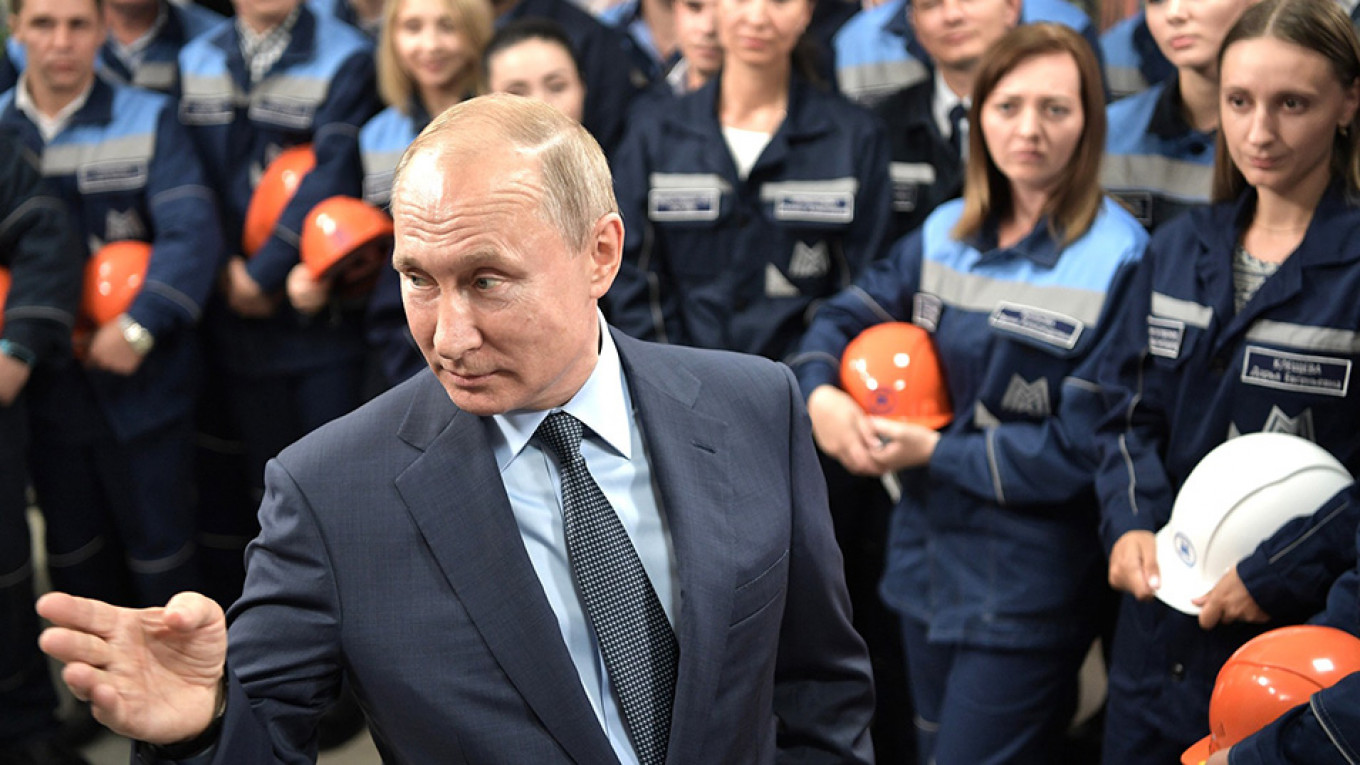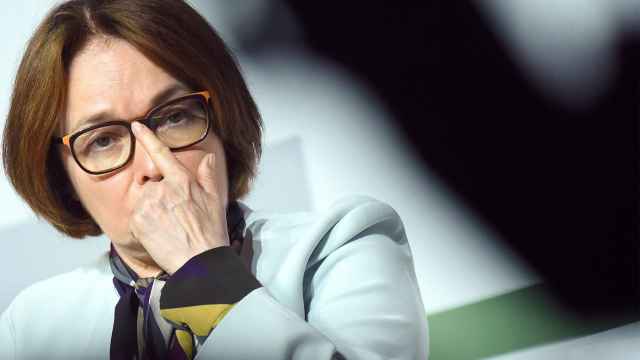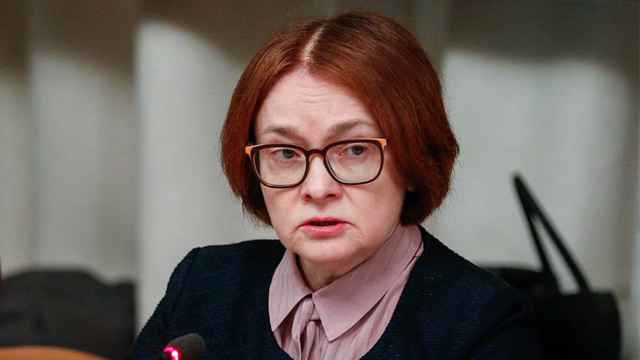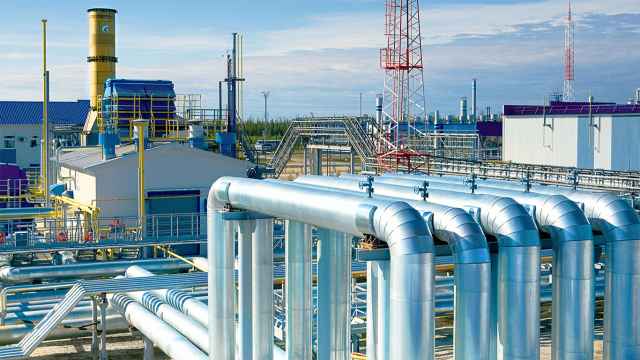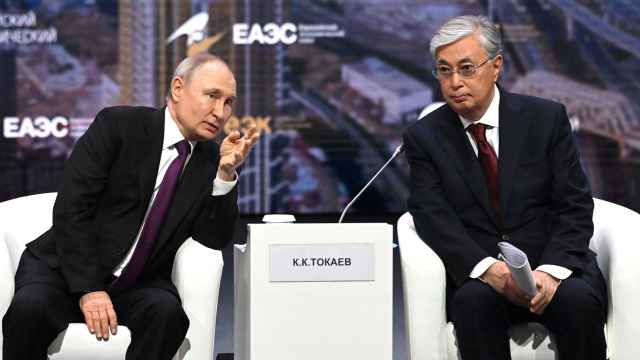Even as President Vladimir Putin has turned Russia into an aggressive, backward-looking police state, competent economic management has saved the nation from an economic collapse. It’s still helping, and, according to the International Monetary Fund’s new assessment, some recent government moves that have not been appreciated in Russia are likely to lead to improved growth. But behind this good news, Putin has a problem: More significant improvements would require disturbing the fragile political balance that ensures his power.
From 2014 through 2018, the Russian economy grew by an average of 0.5 percent a year; yet according to the IMF’s counterfactual calculations, the rate could have been about 1.1 percentage points faster had it not been for three factors: Western sanctions over the annexation of Crimea, the drop in the price of oil, and the fiscal and macroeconomic responses to these shocks. The sanctions account for 0.2 percentage points of that difference, the oil price drop for another 0.6 percentage points. Though the unfortunate combination of factors made Russia fall behind its large emerging-markets peers and the European Union’s post-Communist member states, the effect of the shocks has been relatively contained.
That’s largely because of effective holding action by the country’s economic managers, who have kept the budget tight, inflation down, international reserves growing and the national debt on a declining trajectory. Now, the economic authorities face a tougher challenge — accelerating growth — and they way they’ve responded doesn’t look unreasonable to the IMF, even if the Russian opposition has angrily protested the government’s moves or ridiculed them.
The basic strategy revolves around the 13 so-called national projects, which increase spending on infrastructure, health and education by about 1.1 percent of economic output per year from 2019 through 2024. The government has raised value-added tax starting this year to fund the increases, and it has announced an extremely unpopular pension reform, which gradually increases the retirement age by five years, to 65 for men and 60 for women. The government hasn’t been able to make a majority of Russians believe in the national projects, and the tax hike and pension increase haven’t been appreciated: Putin’s popularity has dropped sharply, and a majority of Russians now disapprove of the cabinet’s work.
True to its reputation as a hater of social spending, the IMF calls the pension reform “welcome,” and early retirement provisions offered by Putin as a sweetener too generous. It also points out that the VAT increase had a smaller effect on inflation than was expected, and that Russia needs to spend more on infrastructure to close a large gap with peers, especially when it comes to road quality and transport. The fund calculates that the combination of policies should lead to an acceleration of the economic growth rate by 2024 to between 1.6 percent and 2 percent, compared with 1.2 percent the fund expects this year. In other words, the new moves could largely offset the effect from the post-2014 shocks (if, of course, the national projects are properly administered and the pension reform brings the expected increase in the labor force).
None of this, however, is particularly ambitious, and a 2 percent growth rate won’t help Russia to start catching up with its peers. The problem, though, is that almost nothing the IMF proposes to achieve a faster pace is politically feasible: The suggestions will either lead to more social discontent, which Putin wants to avoid by all means, or undermine various pillars of the regime.
For example, the IMF points out that Russian employers are required to pay out 30 percent of their workers’ salaries as contributions to various social funds. The fund proposes that the government lower that burden to stimulate businesses, while offsetting the fiscal losses with more VAT revenue. But Russians, who are often unaware of the contributions employers make for them, would immediately notice VAT increases that feed directly into prices. For similar reasons, the Russian government will ignore the IMF recommendation for further spending cuts of up to 2 percent of GDP at the expense of social programs that are “too thinly spread.” Slash them, and Putin would face an outpouring of anger in the country’s poorest parts.
The IMF also proposes a reform in public procurement and a reduction of the state’s role in the economy. Earlier this year, three IMF economists estimated that the state accounts for about a third of Russia’s economic output, 40 percent of value added and 50 percent of formal employment (though there have been even higher estimates); the IMF paper pointed out that the state’s footprint is bigger than its relative size because it lowers the efficiency of resource use and reduces competition. State procurement accounts for 28.5 percent of GDP, and it’s the biggest source of corruption.
Reforms reducing the state footprint, however, would undermine the most important pillars of the Putin regime. The employees of various branches of government and state companies are Putin’s most reliable support base. Putin’s billionaire friends have gotten rich from state procurement, and now that many of them are under sanctions, it remains the only source of their continued prosperity. And Putin needs to keep his cronies happy if he wants to avoid a stab in the back.
Given the regime’s political constraints, it’s hard to see how Russia can defuse economic time bombs like falling private investment, chronic capital outflow and a frightening structure of household debt (households paying out 50 percent of their income to service consumer loans account for 37 percent of the total debt amount). One way would be to spend more of the international reserves to plug the holes, but Putin won’t go there, at least not yet, because of an unpredictable international environment.
Not making major policy mistakes has its limits as an economic strategy. What Russia needs to accelerate is the courage to hurt either ordinary Russians, whose patience is already wearing thin, or the regime’s key interest groups. For now, Putin would rather sit on his hands than risk either.
This article was originally published by Bloomberg.
A Message from The Moscow Times:
Dear readers,
We are facing unprecedented challenges. Russia's Prosecutor General's Office has designated The Moscow Times as an "undesirable" organization, criminalizing our work and putting our staff at risk of prosecution. This follows our earlier unjust labeling as a "foreign agent."
These actions are direct attempts to silence independent journalism in Russia. The authorities claim our work "discredits the decisions of the Russian leadership." We see things differently: we strive to provide accurate, unbiased reporting on Russia.
We, the journalists of The Moscow Times, refuse to be silenced. But to continue our work, we need your help.
Your support, no matter how small, makes a world of difference. If you can, please support us monthly starting from just $2. It's quick to set up, and every contribution makes a significant impact.
By supporting The Moscow Times, you're defending open, independent journalism in the face of repression. Thank you for standing with us.
Remind me later.



